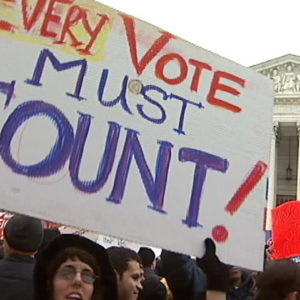In recent weeks the ACLU filed lawsuits in Texas and New Hampshire alleging GOP-backed voting laws “suppressed voter turnout.” In North Carolina, the NAACP is suing to stop voter ID requirements passed in a November voter referendum by a 56-44 percent margin. The liberal Charlotte Observer editorialized that voter ID laws are “awful” and “disenfranchise hundreds of thousands of potential voters. And Stacey Abrams, the high-profile but ultimately unsuccessful candidate for Georgia governor, says these laws are “designed to scare people out of voting.”
But a new study released by the National Bureau of Economic Research finds what many studies have found before: Voter ID laws don’t suppress voter turnout.
“First, the fears that strict ID requirements would disenfranchise disadvantaged populations have not materialized,” write Vincent Pons of Harvard University Business School and Enrico Cantoni of the economics department at the University of Bologna in Italy. “Second, contrary to the argument used by the Supreme Court in the 2008 case Crawford v. Marion County to uphold the constitutionality of one of the early strict ID laws, we find no significant impact on fraud or public confidence in election integrity. This result weakens the case for adopting such laws in the first place.”
In other words, people who want to vote will find a way. People who want to stay home don’t care how easy you make it.
That’s the finding, not just of this study, but of many previous studies as well. So why all the lawsuits and heated rhetoric?
Partisan politics. Blaming lost elections on voter suppression is a winning issue among Democrats.
Consider the case of Abrams, who after losing her bid for the Georgia governorship, began a political organization called Fair Fight focused on the issue of voter empowerment and allegations of discrimination against minority voters. She has repeatedly suggested that an election win was somehow stolen from her, despite the fact that she lost by more than 50,000 votes--about 1.5 percent of the total.
But her focus on ballot access has been a boon to Abram’s post-election career. Earlier this month she became the first private citizen to give a major party’s formal response to a State of the Union address, and she’s widely discussed as a contender for higher office, such as US Senate or even a vice-presidential pick.
After her defeat in November, Abrams claimed “democracy failed Georgia.” In her speech after the SOTU, she declared: “Let’s be clear. Voter suppression is real. From making it harder to register and stay on the rolls, to moving and closing polling places to rejecting lawful ballots, we can no longer ignore these threats to democracy.”
Interesting, but almost certainly untrue given that 2018 saw the highest midterm turnout in the modern era. In fact, the 116 million Americans who voted–49 percent of the eligible population– was a 23 percent spike over the midterm average. And what state had the highest increase in turnout compared to thehistoric average?
In New Hampshire, despite the alleged system-rigging by Republican Gov. Chris Sununu and GOP-controlled legislature, turnout hit a jaw-dropping 573,000 votes for the midterm–even higher than the record 540,000 Secretary of State Bill Gardner predicted.
And the 2018 turnout surge included nearly every demographic group. Across the nation, black voter turnout went from 40 percent in 2014’s midterm to nearly 50 percent in 2018. Young people, many of the college students, turned out in higher numbers in 2018, t00.
All of which has advocates of increased ballot security asking: Where’s the suppression? Turns out, it’s in the minds of demographic groups that are part of the Democratic coalition.
Minority and young voters believe, regardless of the objective data, that their voting rights are being suppressed. According to a poll by the left-leaning Atlantic magazine, “68 percent of black respondents in [our] poll think that disenfranchisement is a major problem, and a similar proportion believe that disenfranchisement is the biggest electoral problem in America.”
President Obama’s Attorney General Eric Holder, who considered a 2020 run himself, said that voting rights has become a “top-five issue.”
“This one has broken through and will be something people will talk about and make their decision about who they’re going to vote for,” Holder said. Which is why Democrats and their liberal allies will keep heading to court to fight a problem that, based on the data, doesn’t exist.

